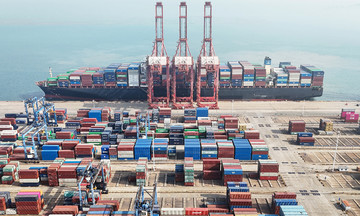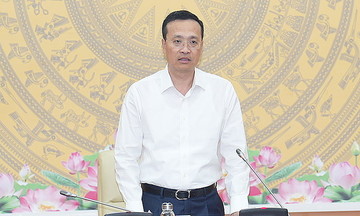This directive is outlined in the Resolution of the September 9th government meeting summarizing August's activities. The government has instructed the State Bank to effectively implement the compulsory transfer of underperforming banks under special control and finalize SCB's restructuring plan by 15/9.
Simultaneously, the State Bank must expedite the increase of charter capital for state-owned commercial banks, effectively manage bad debts, strictly control credit in high-risk sectors, and rigorously address violations according to legal regulations. Furthermore, the State Bank must enhance inspection, supervision, and the prevention and handling of negative behaviors, corruption, and vested interests within banking activities.
Recently, four struggling banks were mandatorily transferred to four commercial banks. Vietcombank acquired CBBank, renaming it VCBNeo digital bank. HDBank acquired DongABank, transforming it into Vikki Bank digital bank. MB acquired Oceanbank, renaming it MBV digital bank. And GPBank was transferred to VPBank. SCB is also an underperforming bank currently seeking investors.
SCB was placed under special control in 10/2022 after several branches and transaction offices experienced mass withdrawals by customers.
In April of this year, the State Bank announced a draft report to the Government and the Politburo outlining the SCB restructuring plan. Previously, the State Bank indicated interest from several investors in participating in the bank's restructuring. By June, Van Thinh Phat Group Joint Stock Company submitted a proposal outlining a 12-year roadmap for addressing the consequences at SCB, backed by 2 billion USD in readily available funds.
Beyond banking, persistent core inflation above 3% for several months, high credit growth, and fluctuations in gold prices and exchange rates present significant challenges for the banking regulatory authority.
The Resolution mandates the State Bank to implement proactive and flexible monetary policies, ensuring appropriate credit growth to meet the economy's capital needs. The State Bank must direct credit institutions to continue reducing costs to lower lending rates, focusing credit towards production, business, and priority sectors.
Exchange rate management must be flexible, balanced, and harmonized with interest rates to stabilize the monetary and foreign exchange markets. The State Bank needs to strengthen management, implement decisive solutions, and take responsibility for stabilizing the gold market, ensuring the development of a safe and sustainable market.
The Government also tasked the Ministry of Finance with implementing a reasonably expansive fiscal policy with clear priorities. The Ministry will continue policies for tax, fee, land rent exemptions, extensions, and reductions, assessing potential risks related to inflation, exchange rates, and the banking system. This assessment will be reported to the Prime Minister in September. The Government Inspectorate will collaborate with relevant agencies to develop a plan for inspecting credit, banking, and gold trading activities.
Phuong Dung












